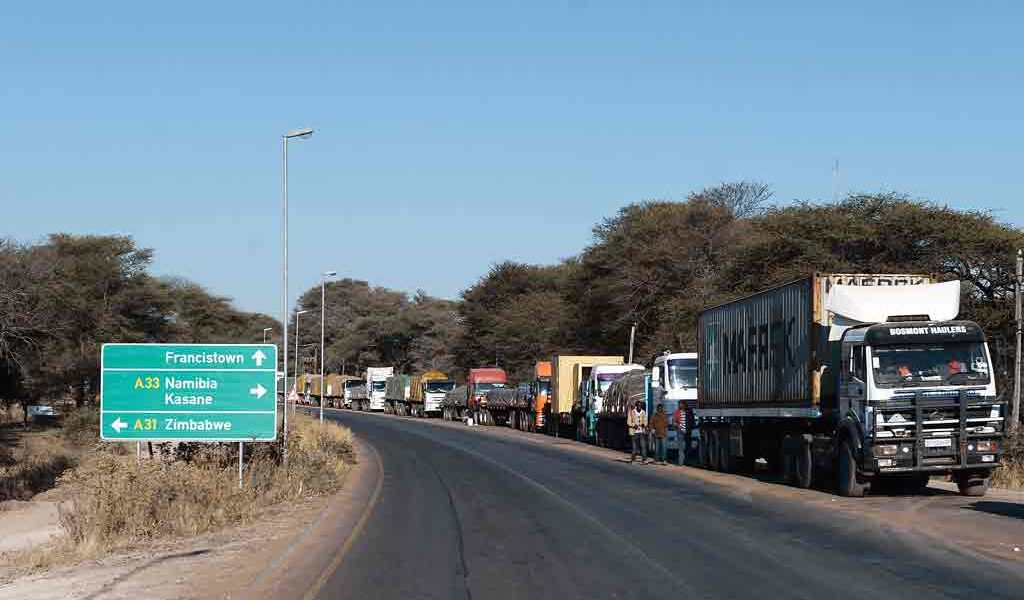- The re-industrialisation of Zimbabwe can be the industrialisation of Botswana
- Pre-colonial infrastructure, robust as it was, has not completely crumbled away
- The boat is sailing fast but non-dynamic institutions such as BDC are probably blind to the opportunities that have inadvertently presented themselves
GAZETTE REPORTER
2017 was a year characterised by regional economic uncertainty as the political situation in South Africa continues to reverberate through its neighbours. Botswana’s largest trading partner is the theatre for an intriguing succession battle between current ANC and national Vice-President Cyril Ramaphosa and the immediate former Africa Union Chairperson Nkosazana-Dlamini-Zuma. This battle viewed in context might simply be a battle between change and the status quo. What are the implications for Botswana?
Having experienced the coup that was not a coup in Zimbabwe, SADC is going through its own political drama. Therein lies some interesting opportunities for Botswana business, often last to make a decisive move when such developments occur. A victory for Ramaposa is widely seen as a victory for business but in particular, “White Monopoly Capital”, (we thank South Africans for coining the phrase), whilst a Dlamini-Zuma succession has with it the tainted legacy of a President embroiled in unprecedented claims of scandal, mismanagement and duplicity.
Ramaposa, obviously eager to shake off any remainder of the Marikana Massacre has and continues to portray himself as championing the cause of a united South Africa keen to engage with its neighbours and create a powerful regional hub with South Africa at the centre. Dlamini-Zuma arguably is more worried about the colour of her curtains for her new palatial state residence should she ascend to the throne.
But it is in Zimbabwe that real growth opportunities through genuinely smart-partnerships can the stagnant Botswana businesses start to develop and thrive. Under Robert Mugabe Zimbabwe became a farcical country with only its name intact and the rule of law a forgotten ideal. However pre-colonial infrastructure, robust as it was, has not completely crumbled away, as if in defiance to the hegemony of Zanu FP. Although the pessimist will insist that Emmerson Mnangagwa’s regime is a sad continuation of the Mugabe system, it cannot be lost on the new Zimbabwe President that re-engagement with international partners is key to moving that country out of a quagmire. What better place to start than engagement with Botswana? Are we however ready to play a role in rebuilding Zimbabwe, a growing market for goods we do not yet produce?
The boat is sailing fast but non-dynamic institutions such as BDC are probably blind to the opportunities that have inadvertently presented themselves. Zimbabwe in many ways is a virgin, fertile ground. Where is the trade delegation to meet the new regime? We need to play the politics correctly here, Ian Khama has endeared himself to the new leadership, lets capitalise that by positioning ourselves as Zimbabwe’s new biggest trading partner. Ridiculous it may seem a financial services entity from Botswana should be at the centre of economic developments in Zimbabwe, whose own financial services sector had become archaic and burdened by logic defying policies from government.
The re-industrialisation of Zimbabwe can be the industrialisation of Botswana, but our desperation in this regard is low if at all existent. It is clear that Zimbabwe wants to re-establish itself as an agricultural power-house a quick analysis immediately reveals that downstream industries are necessary to support this drive. Packaging, marketing and distribution are surely areas where we have, or at least should have developed marked competencies, during the years of Zimbabwe’s economic wilderness. Should this not be the case, then we would have lacked foresight.
While South Africa re-arranges itself it might be prudent to look north and do the hard now, because rest assured the opportunities in Zimbabwe are not being ignored by the traditional nimble investors. Does Botswana have a working model for re-engagement with its northern neighbour? It should be obvious now that we need Zimbabwe more than Zimbabwe needs us; however, our positioning and astute planning are key elements in taking advantage of a wonderful opportunity, all things being equal. The suggestion here is not there will be no risk, on the contrary, it is because of that risk that the opportunity exists.

